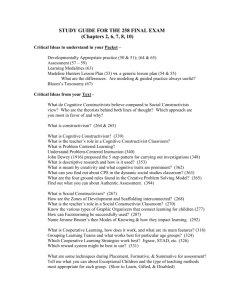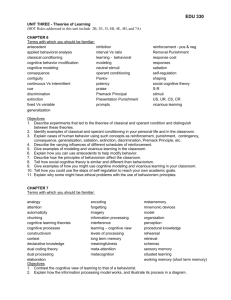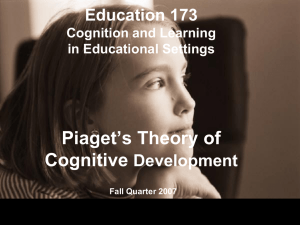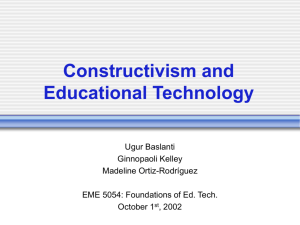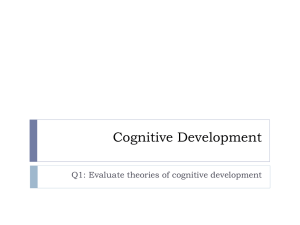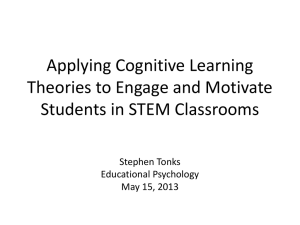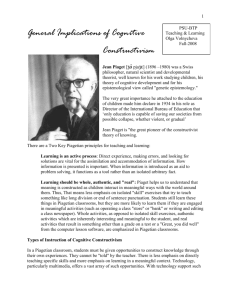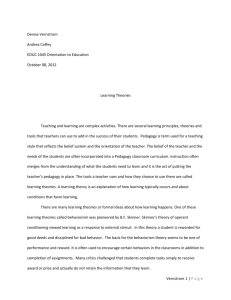Click it to
advertisement
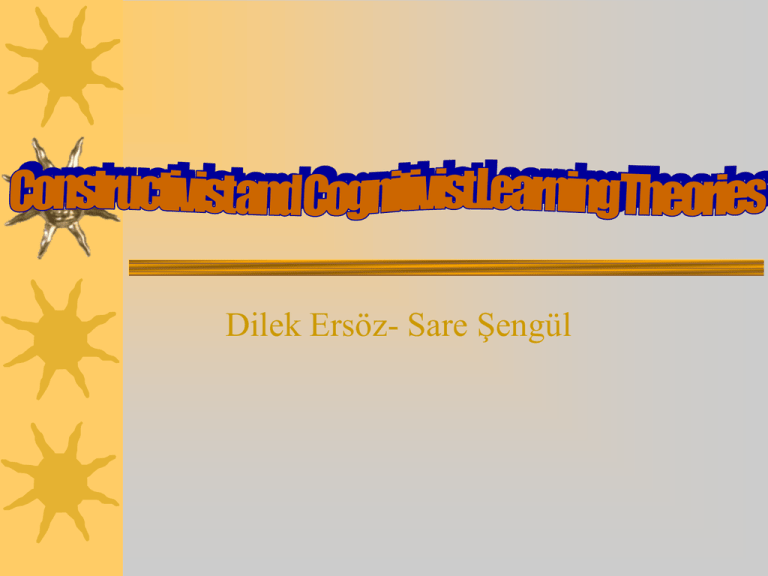
Dilek Ersöz- Sare Şengül Constructivist Theory Constructivism is a theory of knowledge that argues that humans generate knowledge and meaning from an interaction between their experiences and their ideas. Jean Piaget suggested that through processes of accommodation and assimilation, individuals construct new knowledge from their experiences. LET’S LISTEN AND WATCH! Pros of Constructivist Theory • 1. It can promote students’ interests toward learning. – • They deal with issues related to an authentic problem, which cause to generate students’ motivation. – • They focus on student-centered learning. – • Teachers pay attention to each individual. • 2. There are some advantages through collaborative learning. – • Students can learn how to understand other’s opinions. – • Students can find out new solution by interacting with classmates. – • Every student can participate in learning in same level. Continue • 3. Students can increase their abilities to construct knowledge by themselves. – • Main idea of constructivism is for students to create their own knowledge Cons of Constructivist Theory • 1. It can be difficult to implement constructivism in real classroom. – • There is a limit for teachers to pay attention on each individual because the class usually has one teacher and many students. • 2. The class can be messy and lousy. – • Collaborative learning and student-centered learning make class distracted. 3. It is inefficient to apply high level math. Continue • 4. It can be timeconsuming. – • It takes long time for students to understand the issue. • 5. Teachers have to spend lots of time to prepare the class in advance. • 6. When teachers evaluate students’ works, their subjective opinion can reflect in works. Cognitive Theory The Cognivist essentially argues that the balck box of the mind should be opened and understood. , The learner is viewed as an information processor like a computer. The schema of Cognitive Theory Information processing (IP) is a cognitive processing theory (see, Ashcraft, 1994). While other theories in this e-book are learning or instructional in nature, IP theory seeks to explain how the mind functions. Learning components such as rehearsal and elaboration are associated with IP; however, most emphasis is placed on understanding how information is processed rather than how learning happens. Pros of Cognitive Theory In cognitive learning, the learner is more autonomous and develops cognitive abilities and the potentials of his/her own. This approach clarifies the psycolinguistic processes in language use and language learning. Cons of Cognitive Theory How can the learner ever reach beyond internal representations into the reality they are supposed to represent. The cognitive psychology ignores creative thinking and consciousness. Piaget’s cognitive development Sources http://en.wikipedia.org/wiki/Constructivis m_(learning_theory) http://web.utk.edu/~nkang/doc/tpte517long %20paper.pdf http://users.ecs.soton.ac.uk/harnad/Hyperm ail/Foundations.Cognitions/0127.html http://projects.coe.uga.edu/epltt/index.php? title=Image.Information_1.jpg
